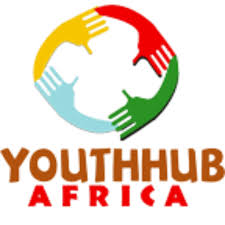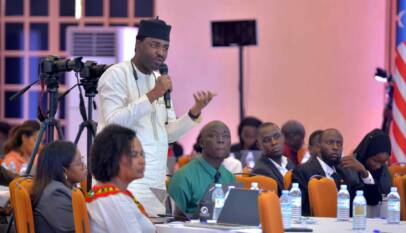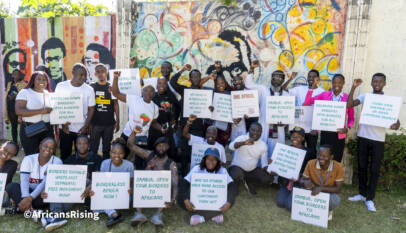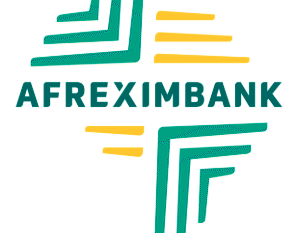BLOG | Young Men’s Network and Campaign Against Gender-Based Violence in Nigeria
Between April 15th and 16th, YouthHubAfrica hosted a stakeholder validation and testing workshop in Abuja, Nigeria, for a training manual aimed at strengthening the capacity of its Young Men’s Network (YMN) Against Gender-Based Violence to prevent and respond to sexual and Gender-Based Violence (SGBV) in their communities.
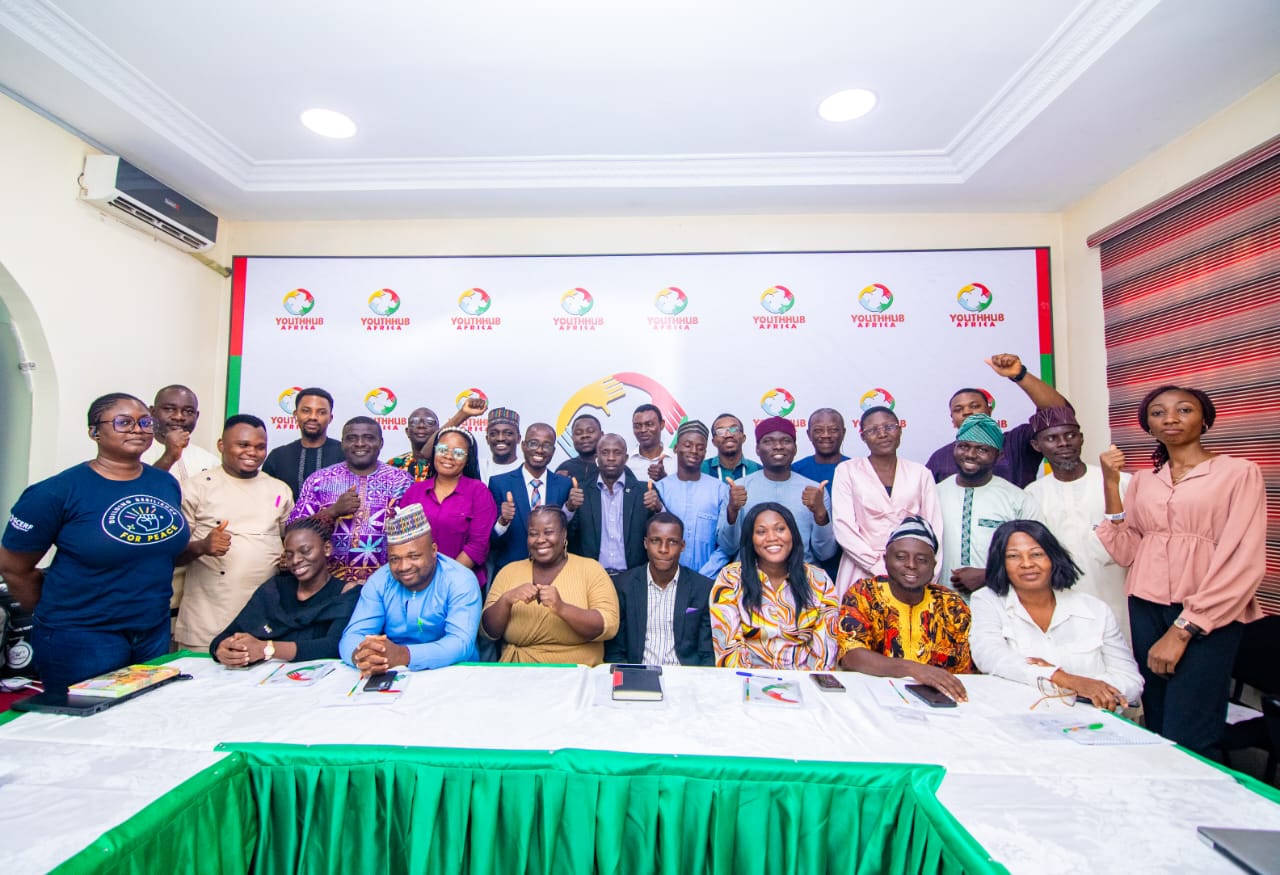
The Young Men’s Network (YMN) Against Gender-Based Violence is a young male leaders’ initiative by YouthHubAfrica to challenge cultural perceptions and stereotypes that fuel gender-based violence (especially with sexually related violence) and oppression against women and girls while influencing attitudes and behaviors in their various communities for change.
The two-day convening was a significant step in the Network’s journey of promoting positive masculinity and empowering young male leaders across Nigeria to challenge cultural perceptions and stereotypes that fuel SGBV.
I attended the workshop as part of coordinators and representatives from YMN’s respective state chapters, and key stakeholders from relevant government ministries and agencies like the Ministry of Women Affairs, the private sector, academia, and development partners such as the United Nations Development Programme (UNDP), and the United Nations Population Fund (UNFPA).
The manual, which spans 6 modules, ensures cultural relevance, content accuracy as well as integrating Social and Behavioral Change Communication (SBCC) strategies. It was adeptly designed for hybrid delivery, encompassing in-person workshops, digital learning modules, and interactive activities to foster accessibility.
Likewise, its content is relevant to a wide range of stakeholders: community leaders, youth advocates, educators, and law enforcement personnel, just as it addresses the unique challenges of marginalized groups, emphasizing intersectionality and inclusivity. By equipping the YMN members with the knowledge and skills to combat SGBV, the manual serves as a dynamic resource for sustainable change at both the grassroots and policy levels.
A Look at the State of GBV in Nigeria
Gender-based Violence (GBV) refers to harmful acts directed at an individual based on their gender, which is rooted in gender inequality, the abuse of power, and harmful norms. GBV is used interchangeably with Violence Against Women (VAW), which encompasses all acts of violence, including rape, attempted rape, sexual assault, sexual abuse, sexual exploitation and harassment as well as spousal abuse and sex trafficking.
Thus, GBV can take many forms, including physical, sexual, or psychological Intimate Partner Violence (IPV), child marriage, sex trafficking, honour killings, sex-selective abortion, Female Genital Mutilation (FGM), sexual harassment and abuse, and digital violence such as cyberbullying.
GBV is considered one of the most oppressive forms of gender inequality; it reinforces the existing gender imbalances between men and women, especially in a developing country like Nigeria and equally violates the fundamental human rights of victims, posing a significant obstruction to the equal participation of women and men in social, economic, and political spheres.
The outbreak of the COVID-19 pandemic, reports have shown, intensified several forms of violence against women and girls. Although the pandemic claimed the lives of many across different genders, its disproportionate impact on women and girls’ socio-economic welfare threatens to reverse the hard-won gains in advancing gender equality and women’s empowerment.
According to the 2013 Nigeria Demographic and Health Survey (NDHS), 1 in 3 Nigerian women had experienced physical violence by age 15. The insurgency in the Northeastern region contributes significantly to the rising incidents of GBV in Nigeria – from forced and early marriages to the physical, mental, and sexual assault on a woman.
Endgbv.africa reported that approximately 31% of women in Nigeria have experienced physical violence from the age of 15, mostly by intimate partners. Notably, it is estimated that the country has up to 15 million Child Domestic Workers (CDWs) working under exploitative conditions. A Punch newspaper report states that Nigeria recorded a total number of 27,698 Sexual and Gender-Based Violence (GBV) cases between 2020 and 2023.
Equally, recent data from the National GBV Dashboard of the Federal Ministry of Women Affairs shows 9,636 open cases, 3,432 new cases, 1,741 closed cases, and 1,885 follow-up cases. Further to this, the Women’s Affairs Ministry recorded 1,145 fatal GBV cases, out of which 393 perpetrators were convicted.
Beyond that, the abuse of women in digital spaces and the infringement of their rights to privacy, dignity, and freedom of expression, amongst other fundamental human rights, is only increasing, while appropriate responses that take into account violence perpetrated over digital platforms are still largely lacking.
Young Men’s Network to the Rescue
YouthHubAfrica’s Young Men’s Network Against Gender-Based Violence was launched in 2014 to enable young male leaders to challenge cultural perceptions and stereotypes that fuel gender-based violence. Over the years, the Network has expanded into ten Nigerian states, namely: Oyo, Osun, Imo, Ekiti, Ebonyi, Kano, Kaduna, Bauchi, Cross River and the FCT.
Rotimi Olawale, the Executive Director of YouthHubAfrica, said the Network aims to greatly reduce the rising numbers of gender-based violence in Nigeria in the next 5-10 years, quoting 2022 data from Statista, which shows men account for the highest number of sexual abuse cases in Nigeria.
Against this backdrop, putting young men at the centre of the fight against GBV will encourage women to actively participate in nation-building activities, including politics and all forms of leadership, and reduce the incidence of gender roles, making Nigeria a haven for both men and women!

